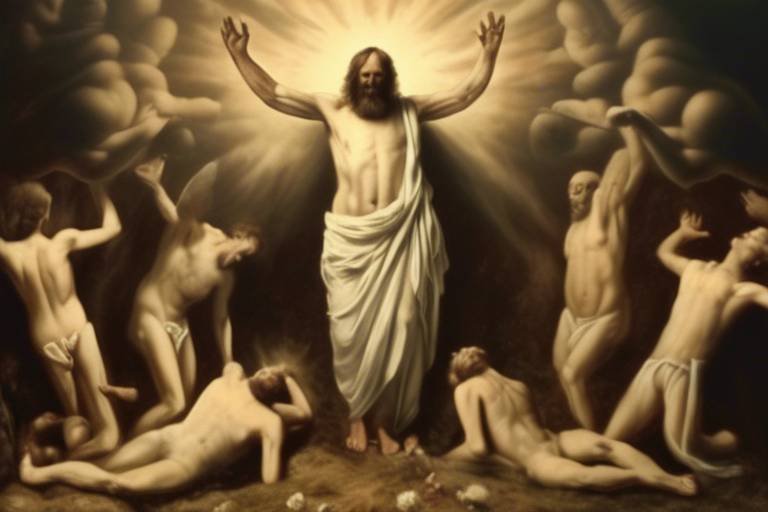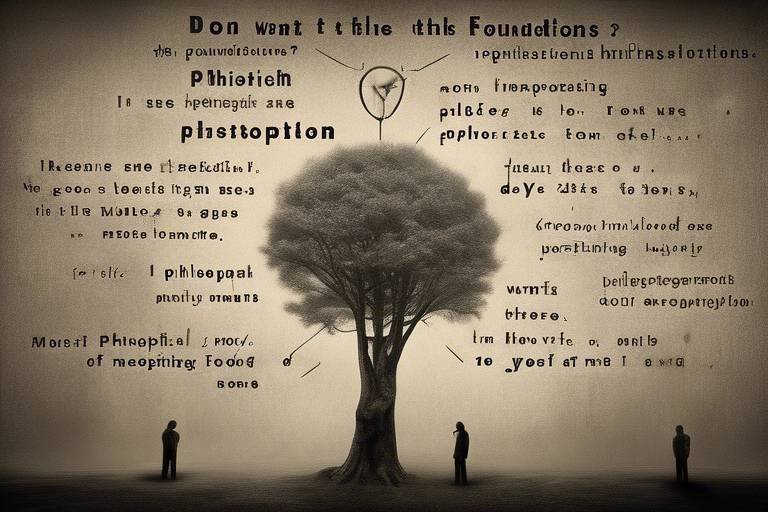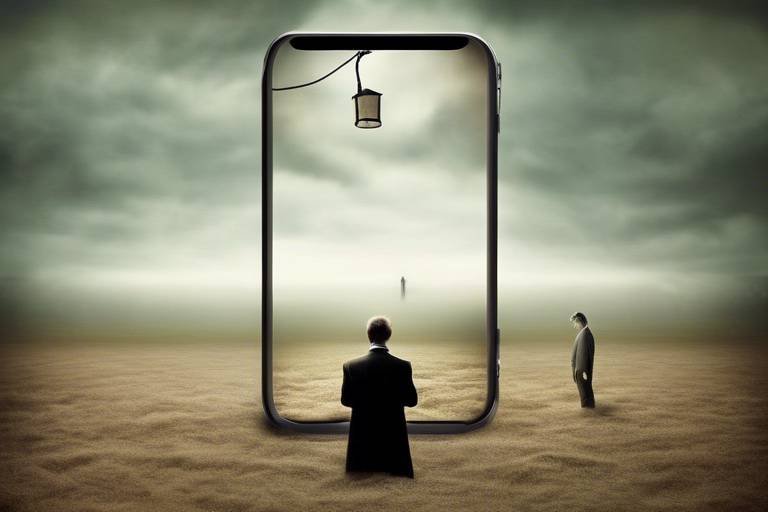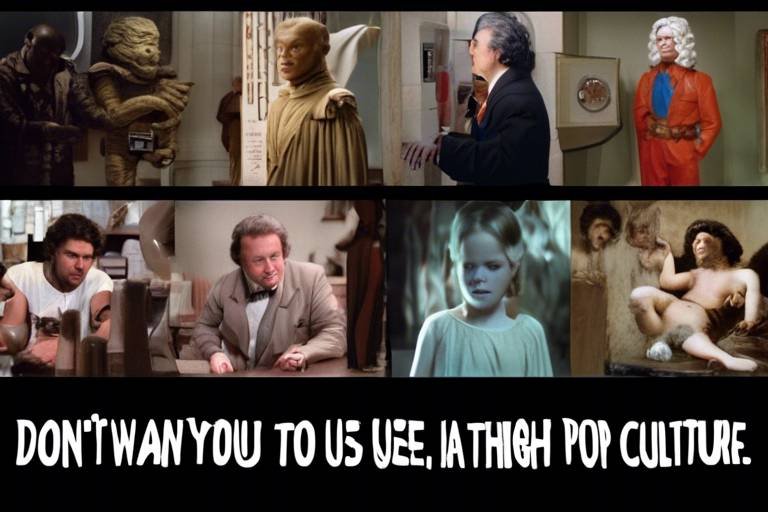Debunking the Philosophy of Bodily Resurrection
The concept of bodily resurrection has intrigued humanity for centuries, intertwining itself with our deepest fears and hopes about life after death. This philosophy, which posits that our physical bodies will rise again after death, raises profound questions that echo through the halls of history, theology, and philosophy. But is it a tenable belief? In this article, we will peel back the layers of this complex idea, examining the historical context, philosophical arguments, and scientific perspectives that challenge the notion of bodily resurrection.
To truly grasp the implications of bodily resurrection, we must first understand its historical roots. Ancient civilizations, from the Egyptians with their elaborate burial practices to the Greeks who pondered the afterlife, laid the groundwork for what would evolve into modern beliefs. Texts such as the Bible, particularly in the New Testament, provide narratives that have shaped the concept of resurrection within Christianity. Meanwhile, Eastern philosophies offer contrasting views that emphasize spiritual transcendence over physical revival. By exploring these ancient texts and cultural influences, we can see how the belief in resurrection has been molded and reshaped through time, often reflecting the societal values and existential questions of each era.
As we delve deeper, we encounter a barrage of philosophical critiques that challenge the very foundation of bodily resurrection. One of the most compelling arguments comes from materialism, which posits that consciousness is inextricably linked to the physical body. If our thoughts, emotions, and identities are products of our biological makeup, how can they exist independently of our physical forms? This question leads us to a critical juncture in the resurrection debate.
Materialists argue that our consciousness is not some ethereal essence waiting to be revived; rather, it is a byproduct of our biological processes. This perspective creates a significant conflict with the idea of resurrection, as it implies that once the body ceases to function, so too does the consciousness that defines us. Imagine trying to reboot a computer without its hardware—can the software truly exist if the machine is gone? This analogy highlights the inherent challenges in reconciling materialist views with the resurrection narrative.
Another thorny issue is the problem of identity. If a person is resurrected, is it truly the same individual? Philosophers like John Locke have argued that personal identity is tied to consciousness and memory. If a body is revived, but the memories and consciousness do not accompany it, can we genuinely say that the same person has returned? This dilemma forces us to reconsider our understanding of selfhood and continuity, raising questions that linger in the air like a haunting melody.
Moreover, the ethics surrounding resurrection prompt us to consider the moral ramifications of such beliefs. If we accept that resurrection is possible, what does that mean for our understanding of life and death? Would it diminish the value of our current existence, leading to a reckless attitude towards life? The potential consequences of believing in bodily resurrection could alter our ethical frameworks, pushing us to question the very essence of morality itself.
In light of these philosophical challenges, it is essential to explore alternative views on life after death. Many philosophies propose interpretations that do not rely on the resurrection of the body. For instance, Buddhism emphasizes the cycle of rebirth and the impermanence of the self, while various spiritual perspectives focus on the continuation of the soul rather than the physical form. By examining these alternatives, we can broaden our understanding of what life after death might entail, moving beyond the confines of traditional resurrection narratives.
As we transition into the realm of science, we find that inquiry offers intriguing insights into the plausibility of bodily resurrection. Scientific exploration into biology, neurology, and existential questions provides a framework for understanding the complexities of life and death. For instance, advancements in neuroscience have illuminated the intricate relationship between the brain and consciousness, challenging the notion that identity can simply be restored by reviving a physical body.
Delving into the nature of consciousness reveals a web of complexities that further challenge the resurrection narrative. Scientists have yet to reach a consensus on how consciousness arises, making it difficult to argue for its revival after death. If consciousness is a product of neural activity, what happens to it when the brain ceases to function? This question remains one of the most profound mysteries of human existence.
Finally, we must consider the technological implications of resurrection. With rapid advancements in fields like artificial intelligence and biotechnology, the lines between life and death are becoming increasingly blurred. Could technology one day allow us to replicate or restore consciousness? While this idea may sound like science fiction, it raises ethical and philosophical questions about the nature of existence and what it means to be truly alive.
- What is bodily resurrection? Bodily resurrection refers to the belief that a person's physical body will be revived after death.
- What are the main philosophical arguments against it? Key arguments include materialism, the problem of identity, and ethical implications surrounding the concept.
- Are there alternative beliefs about life after death? Yes, many philosophies, such as Buddhism, propose different interpretations that do not rely on bodily resurrection.
- How does science view the concept of resurrection? Science raises questions about consciousness and identity, challenging the feasibility of bodily resurrection.
- What role does technology play in this discussion? Emerging technologies may redefine our understanding of life, death, and the possibility of resurrection.

The Historical Context of Bodily Resurrection
Understanding the origins of the belief in bodily resurrection is crucial for grasping its significance in various cultures and religions throughout history. This concept has not emerged in a vacuum; it is deeply rooted in ancient texts, cultural narratives, and evolving philosophical thought. For instance, in ancient Egypt, the notion of resurrection was intertwined with the afterlife, where the body was preserved through mummification to ensure a successful journey to the realm of the dead. The Book of the Dead served as a guide for the deceased, illustrating their belief in a physical resurrection.
In the context of the Judeo-Christian tradition, bodily resurrection is prominently featured in the Hebrew Scriptures, particularly in the prophetic writings. The prophet Daniel, for example, speaks of a time when the dead will rise to eternal life or eternal shame (Daniel 12:2). This idea was further developed in the New Testament, where the resurrection of Jesus Christ is central to Christian belief, symbolizing hope and the promise of eternal life for believers. The early Christians were profoundly influenced by these ideas, which shaped their understanding of life after death and the importance of the physical body in the resurrection narrative.
Moreover, the philosophical debates surrounding resurrection can be traced back to ancient Greece. Thinkers like Plato and Aristotle contributed significantly to discussions about the soul and body. Plato, in his dialogues, suggested that the soul is immortal and exists independently of the body, which raises questions about the nature of resurrection itself. Aristotle, on the other hand, argued for a more integrated view of the body and soul, positing that they are inseparable and that the essence of a person is tied to their physical form. This divergence in thought laid the groundwork for later theological interpretations of resurrection.
Throughout history, various cultures have contributed to the evolving narrative of bodily resurrection. In Eastern philosophies, such as Hinduism and Buddhism, the focus shifts from resurrection to concepts like reincarnation and the cyclical nature of life and death. These beliefs challenge the linear perspective of resurrection, presenting a more fluid understanding of existence beyond physical life.
In summary, the historical context of bodily resurrection is a tapestry woven from ancient texts, cultural beliefs, and philosophical inquiries. Each thread contributes to a rich understanding of how humanity has grappled with the concept of life after death and the role of the body in that journey. As we delve deeper into the philosophical arguments and scientific perspectives, it’s essential to keep this historical backdrop in mind, for it shapes our current interpretations and beliefs.

Philosophical Arguments Against Bodily Resurrection
The concept of bodily resurrection has intrigued humanity for centuries, but it also raises a multitude of questions that challenge its plausibility. At the heart of this debate are several philosophical arguments that question the very foundation of the idea. One of the most compelling arguments comes from the realm of materialism, which posits that consciousness is inherently tied to the physical body. If we accept this viewpoint, the notion of resurrecting a physical form becomes profoundly problematic. How can something that is fundamentally tied to a physical entity exist independently after death? This conflict becomes even more pronounced when we consider the implications of personal identity.
When we talk about resurrection, we often assume that the same person who lived will return in the same form. However, this raises the problem of identity. What makes you, you? Is it your memories, your consciousness, or your physical body? If a person is resurrected, which version of them is returned? Is it the body that once existed, or a new body that simply carries the same memories? This dilemma leads us to question not just the feasibility of resurrection, but the very nature of selfhood and continuity. To illustrate this, consider the analogy of a ship: if you replace every single plank of wood in a ship, is it still the same ship? Similarly, if all the cells in your body are replaced over time, are you still the same person?
Moreover, the ethical implications surrounding bodily resurrection cannot be ignored. If we accept the idea that resurrection is possible, what does that mean for our understanding of life and death? Would it lead to a devaluation of life, where death is no longer seen as a finality but merely a temporary state? This perspective could have dangerous consequences, leading to moral dilemmas about how we treat life and death. For instance, if resurrection is achievable, does that justify unethical actions in the name of scientific advancement? Should we be experimenting with life in ways that could lead to unforeseen consequences? These questions highlight the profound ethical considerations that accompany the belief in resurrection.
In addition to these philosophical challenges, we must also consider the alternative views on life after death that exist within various cultures and belief systems. Many philosophies propose interpretations that do not rely on the physical resurrection of the body. For example, concepts like reincarnation or spiritual continuation suggest that the essence of a person can exist beyond the physical form without needing to be resurrected. This opens up a broader discourse on what it means to exist and how we understand life after death.
Ultimately, the philosophical arguments against bodily resurrection compel us to rethink our assumptions about identity, ethics, and the nature of existence itself. As we navigate these complex waters, it becomes clear that while the idea of resurrection may be appealing, it is fraught with challenges that merit serious consideration.
- What is the main argument against bodily resurrection?
The primary argument against bodily resurrection is the conflict between materialism and the idea that consciousness can exist independently of the physical body. - How does personal identity complicate the resurrection debate?
Personal identity is complicated by the question of whether a resurrected person is the same individual, given that all physical matter in the body changes over time. - What ethical implications arise from the belief in resurrection?
Believing in resurrection could lead to a devaluation of life and create moral dilemmas regarding the treatment of life and death. - Are there alternative views on life after death?
Yes, many cultures and philosophies propose alternatives such as reincarnation or spiritual continuation that do not rely on bodily resurrection.

Materialism and the Body
When we dive into the realm of materialism, we encounter a viewpoint that fundamentally challenges the notion of bodily resurrection. Materialism posits that everything that exists is either made of matter or is dependent on matter for its existence. This perspective presents a compelling argument: if our consciousness is inextricably linked to our physical bodies, how can we even entertain the idea of resurrecting a body after death? It’s like trying to bake a cake without any ingredients; without the physical form, where does consciousness reside?
The implications of this are profound. For materialists, the body and mind are not separate entities but rather two sides of the same coin. When the body ceases to function, so does the mind. This belief raises critical questions about the feasibility of resurrection. If we were to resurrect a body, what would happen to the consciousness? Would it simply re-enter the body like a lost key finding its lock, or would it be a completely different experience, akin to trying to fit a square peg in a round hole?
Moreover, the materialist viewpoint emphasizes that our experiences, memories, and identities are all tied to the biological processes occurring within our brains. This connection suggests that the very essence of who we are is not just a soul waiting to be reunited with a body, but rather a complex interplay of neurons, chemicals, and physical interactions. To illustrate this, consider the following table that outlines the relationship between materialism and consciousness:
| Aspect | Materialist View | Traditional Resurrection View |
|---|---|---|
| Nature of Consciousness | Dependent on physical body | Independent of physical body |
| Identity | Defined by physical processes | Defined by eternal soul |
| Afterlife Concept | Non-existent after death | Possible resurrection |
This clash between materialism and the idea of resurrection not only raises philosophical dilemmas but also invites us to ponder the ethical implications of such beliefs. If we accept that our consciousness is tied to our physical existence, the notion of resurrecting a body could lead to a myriad of ethical questions. For instance, should we attempt to bring back those who have passed away? What if the resurrection process alters their consciousness or identity in ways we cannot predict? These questions force us to confront the uncomfortable reality of what it means to be human.
In conclusion, the materialist perspective offers a challenging lens through which to view the concept of bodily resurrection. It pushes us to critically evaluate our understanding of consciousness and identity, urging us to consider whether resurrection is a mere fantasy or a profound misunderstanding of what it means to be alive. As we continue to explore these ideas, the dialogue between materialism and resurrection will undoubtedly evolve, inviting deeper reflection on our beliefs about life, death, and what may lie beyond.
- What is materialism? Materialism is the philosophical viewpoint that everything that exists is made of matter or is dependent on material processes.
- How does materialism relate to consciousness? Materialism posits that consciousness arises from physical processes in the brain, meaning it is tied to the body.
- Can bodily resurrection be reconciled with materialism? Many argue that if consciousness is tied to the physical body, then resurrection as traditionally understood may not be feasible.
- What ethical questions arise from the idea of resurrection? Ethical implications include the morality of attempting to resurrect the dead and the potential consequences of altering their consciousness.

The Problem of Identity
The concept of bodily resurrection brings forth a profound dilemma regarding personal identity. When we think about what makes us who we are, we often consider our memories, experiences, and consciousness. But if we were to resurrect our physical bodies, would we truly be the same person? This question is not merely philosophical; it strikes at the core of our understanding of selfhood and continuity. Imagine for a moment that you could step into a time machine and relive your past. Would you still be the same person if you altered your experiences? This analogy serves to illustrate the complexity of identity in the resurrection debate.
One of the primary concerns is the continuity of self. If a person is resurrected in a new body, how do we determine that they are the same individual? Are they merely a copy of the original, or do they carry the essence of the person who lived before? This brings us to the philosophical notion of psychological continuity, which posits that our identity is tied to our memories and consciousness rather than our physical form. If our memories and consciousness could exist independently of our bodies, could we still claim that a resurrected being is genuinely 'us'? Or is it just an echo of our former selves?
Additionally, the question of physicality complicates matters further. Our bodies undergo constant change throughout our lives; cells die and regenerate, and we physically evolve. If we were resurrected, would we return to our exact physical state at the moment of death, or would that body be a mere representation of who we once were? This leads to the perplexing idea of a 'body swap'—if you were to inhabit a different body, would your identity shift along with it? The implications of such scenarios challenge the very fabric of our understanding of identity.
Moreover, let's consider the implications of resurrection on our relationships. If a loved one were to be resurrected, would they still share the same bond with us? Would their personality remain intact, or would they emerge as a different entity altogether? The emotional ramifications of this are staggering. We might find ourselves interacting with a version of someone we once knew, yet fundamentally altered in ways that could render our previous connections obsolete.
In summary, the problem of identity in the context of bodily resurrection raises critical questions about what it means to be 'us.' Are we merely our bodies, or is there something deeper that defines our identity? As we navigate these philosophical waters, it becomes clear that the resurrection debate is not just about life after death, but about the very essence of who we are.
- What is bodily resurrection? Bodily resurrection is the belief that a person's physical body will be restored after death, allowing them to live again in a physical form.
- How does bodily resurrection relate to personal identity? The debate centers around whether a resurrected individual retains the same identity as the original person, considering factors like memories and consciousness.
- What are the philosophical challenges to bodily resurrection? Key challenges include questions of continuity of self, the nature of consciousness, and the implications for personal relationships.
- Are there alternative beliefs about life after death? Yes, many philosophies propose different interpretations of life after death, such as reincarnation or spiritual existence without a physical body.

Ethical Implications
When we dive into the murky waters of bodily resurrection, we quickly find ourselves grappling with a myriad of . It’s not just about whether someone can come back to life; it raises profound questions about the nature of existence, the sanctity of life, and the moral responsibilities we hold towards one another. Imagine, for a moment, a world where resurrection is possible. How would society react? Would it be a blessing or a curse?
First off, we have to consider the inherent value of life. If we can resurrect the dead, does that diminish the value of life itself? The idea that life can be taken and returned at will might lead to a dangerous mindset where people take reckless risks, knowing that death is no longer permanent. This notion could lead to a culture that undervalues the fragility of human life, as it may foster a belief that death is merely a temporary setback.
Furthermore, the concept of resurrection could potentially create a divide between those who can afford the technology or means to be resurrected and those who cannot. Imagine a scenario where only the wealthy have access to resurrection services, leading to a new form of inequality. This raises critical questions about justice and equity. Would we be creating a society where the rich can live indefinitely while the poor face a finality that is unchangeable? The implications are staggering and could lead to societal unrest.
Additionally, we must consider the emotional toll on families and loved ones. If someone were to be resurrected, how would that impact the grieving process? Would families be forced to revisit their grief over and over again? The psychological implications of this could be profound, leading to a cycle of trauma that never truly allows for closure. The emotional landscape of relationships would be forever altered, creating a complex web of feelings surrounding loss and reunion.
Moreover, the ethical considerations extend to the very concept of identity. If a person is resurrected, is it truly the same person? Or is it merely a copy of their consciousness? This question leads us into the realm of personal identity and the continuity of self. If resurrection alters the essence of who we are, then we must ask: what does it mean to be human? The implications of this inquiry are vast and deeply philosophical.
In conclusion, the ethical implications of bodily resurrection are not just theoretical musings; they are pressing issues that demand our attention. As we explore this fascinating yet troubling concept, we must remain vigilant about the potential consequences it could have on our society, our values, and our very understanding of life and death. The journey into the ethics of resurrection is as complex as it is essential, urging us to reflect on what it truly means to live and die.
- What are the main ethical concerns regarding bodily resurrection? The main concerns include the value of life, societal inequalities, emotional impacts on families, and questions of personal identity.
- Could resurrection lead to societal inequality? Yes, if resurrection technology is only available to the wealthy, it could create a significant divide in society.
- How might resurrection affect the grieving process? It could complicate the grieving process by forcing families to revisit their loss repeatedly, potentially leading to unresolved trauma.
- What does resurrection imply about personal identity? It raises questions about whether a resurrected individual is the same person or merely a copy, challenging our understanding of selfhood.

Alternative Views on Afterlife
When it comes to the afterlife, the idea of bodily resurrection isn't the only game in town. In fact, it's just one of many perspectives that people hold. Let's face it: the concept of what happens after we kick the bucket can be as varied as the flavors of ice cream at your local parlor. Some folks believe in reincarnation, while others lean towards spiritualism or even a complete cessation of existence. Each of these views offers a unique lens through which to understand life after death.
One popular alternative is reincarnation, which suggests that after we die, our souls are reborn into new bodies. This belief is rooted in various Eastern religions, like Hinduism and Buddhism, and it raises some fascinating questions about karma and the continuity of the soul. Imagine living multiple lives, each one offering you lessons to learn and experiences to gain. It's a bit like a cosmic video game, where you level up with each new life!
Another intriguing perspective is found in spiritualism. Spiritualists believe that the spirit continues to exist after physical death, often communicating with the living through mediums. This idea suggests that our loved ones are still around us in some form, ready to offer guidance or comfort. It’s a comforting thought, isn't it? The idea that we don’t just vanish into thin air but rather transition into a different state of being.
Then there are those who subscribe to the notion of existential nihilism, which posits that life is inherently meaningless and that death is simply the end of consciousness. This perspective can be a tough pill to swallow, but it also liberates some individuals from the fear of death. If nothing comes after, why worry about it? Instead, they may focus on making the most of their time here and now, embracing the fleeting nature of life.
To sum it up, the afterlife isn't a one-size-fits-all scenario. Each belief system offers its own insights and challenges. While bodily resurrection might be a comforting thought for some, others find solace in the idea of reincarnation, spiritual connections, or even the acceptance of nothingness. The beauty of this diversity is that it allows each of us to explore and find meaning in our own way.
- What is the main idea behind reincarnation? Reincarnation is the belief that after death, the soul is reborn in a new body, allowing for multiple lives and experiences.
- How do spiritualists communicate with the deceased? Spiritualists typically use mediums to facilitate communication between the living and the spirits of the deceased, often through séances.
- What does existential nihilism say about life after death? Existential nihilism suggests that life is meaningless and that death marks the end of consciousness, with no afterlife to follow.

Scientific Perspectives on Resurrection
The concept of bodily resurrection stirs up a whirlwind of questions, especially when viewed through the lens of science. It's not just a matter of faith or philosophical debate; science offers a robust framework to examine the plausibility of resurrection. What does it mean to come back to life? Is it merely a fantastical idea, or could there be a scientific basis for such an event? To tackle these questions, we need to dive into a few critical areas: biological, neurological, and existential arguments.
First off, let's consider the biological aspect. When a person dies, their body undergoes a series of irreversible changes. Cells break down, organs fail, and eventually, the entire system ceases to function. Can science really propose a method to reverse these processes? Some scientists argue that, while we have made remarkable advancements in medicine, the idea of reviving a fully decomposed body is akin to trying to reassemble a jigsaw puzzle after all the pieces have been scattered to the winds. The biological intricacies involved make it a daunting task, if not an impossible one.
Moving on to the neurological perspective, this is where things get even more fascinating. Our consciousness, our very essence, is thought to be tied to the brain's intricate network of neurons. When someone dies, brain activity ceases, and with it, the continuity of consciousness. Could we ever restore this lost consciousness? Some neuroscientists are exploring the concept of brain mapping and the potential for technology to recreate experiences and memories. However, even if technology advances to the point where we can simulate a person's memories, does that truly equate to resurrecting that individual? Herein lies a significant dilemma: the distinction between mere simulation and genuine resurrection.
Now, let's not forget the existential implications. What does resurrection mean in the grand scheme of things? If we could somehow bring someone back, would they still be the same person? Would their identity remain intact, or would it be altered in ways we can't even begin to fathom? This brings us to a critical juncture in our understanding of life and death. The scientific community is increasingly acknowledging that our definitions of these concepts are far from black and white. Life, death, and what might lie beyond are intertwined in a complex tapestry that science is only beginning to unravel.
To illustrate these points, consider the following table that summarizes the key scientific perspectives on resurrection:
| Aspect | Scientific Perspective |
|---|---|
| Biological | Irreversible changes occur post-mortem, complicating the resurrection process. |
| Neurological | Consciousness is tied to brain activity; loss of function raises questions about identity. |
| Existential | The meaning of life and death challenges our understanding of resurrection. |
As we ponder these scientific perspectives, it's clear that the notion of resurrection is not just a simple return to life. It involves a multitude of complexities that intertwine biology, neuroscience, and existential philosophy. So, the next time someone brings up the idea of resurrection, you might want to ask them: what does that really mean? Is it a return to the physical form, or is it something more profound?
- What is bodily resurrection? Bodily resurrection refers to the belief that a person's physical body can be revived after death.
- Are there scientific studies on resurrection? While there are no direct studies on resurrection, related fields like neuroscience and biology explore concepts of life and consciousness.
- How does consciousness relate to resurrection? Consciousness is believed to be tied to the brain, raising questions about identity and continuity after death.
- What are the ethical implications of resurrection? The ethics surrounding resurrection involve moral considerations about identity, consent, and the nature of life itself.

The Nature of Consciousness
When we dive into the nature of consciousness, we find ourselves in a labyrinth of philosophical questions and scientific inquiries that challenge our understanding of existence itself. What does it mean to be conscious? Is our awareness merely a byproduct of our physical brain, or does it transcend the biological confines of our bodies? These questions become even more intriguing when we consider the concept of bodily resurrection. If we are to believe in resurrection, we must first grapple with the complexities of consciousness and how it relates to our physical form.
At its core, consciousness is often described as the state of being aware of and able to think about one’s own existence, thoughts, and surroundings. Yet, the question remains: is consciousness something that can be separated from the body? To illustrate this point, consider the analogy of a computer. The hardware (the physical components) and the software (the programs that run on it) are distinct yet interdependent. Similarly, many argue that our consciousness is deeply intertwined with our physical bodies. Take a moment to reflect: if the body ceases to exist, can the software—our consciousness—continue to operate independently?
Recent advancements in neuroscience have provided insights into how consciousness emerges from brain activity. For example, studies using functional magnetic resonance imaging (fMRI) have shown that specific brain regions activate during conscious thought processes. This raises a pivotal question: if consciousness is a product of our brain's physical structure, how could it possibly survive the death of the body? The implications are profound, suggesting that the resurrection of a physical body may not align with our current understanding of how consciousness functions.
Furthermore, the relationship between consciousness and the body introduces the challenge of personal identity. What makes you, you? Is it your memories, your thoughts, or your physical form? If we were to resurrect a body, would the consciousness that inhabited it truly be the same? This dilemma is akin to a well-known philosophical thought experiment known as the Ship of Theseus. If every part of a ship is replaced over time, is it still the same ship? Likewise, if a person’s body is resurrected but their consciousness has changed or evolved, can we claim that the same individual has returned?
As we ponder these questions, it's essential to consider the ethical implications of our beliefs about consciousness and resurrection. If we assume that consciousness can exist independently of the body, what does that mean for our understanding of life and death? Would it justify attempts to extend life beyond natural limits, or might it lead to a devaluation of the human experience? These ethical considerations are critical as we navigate the murky waters of resurrection philosophy.
In conclusion, the nature of consciousness remains one of the most profound mysteries of human existence. As we explore the possibility of bodily resurrection, we must confront the intricate relationship between our minds and bodies. Whether we view consciousness as an emergent property of the brain or as something more transcendent, the implications for our understanding of life after death are monumental. The journey into the depths of consciousness is not just an academic exercise; it is a quest that touches the very essence of what it means to be human.

Technological Implications
In our rapidly evolving world, technology has become a double-edged sword, especially when we start to ponder the concept of bodily resurrection. Imagine a future where advancements in science and technology could offer us a glimpse into the possibility of resurrecting the dead. This notion might sound like something straight out of a sci-fi movie, but let’s delve into what this could mean for our understanding of life, death, and what it means to be human.
At the forefront of this discussion is the field of biotechnology. With breakthroughs in genetic engineering and cloning, we are beginning to unlock the secrets of life at a molecular level. For instance, scientists have successfully cloned animals like sheep and dogs, raising the question: if we can clone a living being, could we potentially recreate a deceased individual’s body? This technology, while still in its infancy, suggests that the resurrection of the physical form may not be entirely out of reach.
Moreover, advancements in neuroscience are reshaping our understanding of consciousness. Researchers are exploring how memories and personality traits are encoded in the brain. If we could somehow map and replicate the neural connections that define who we are, it opens up a tantalizing possibility: could we not just recreate a body but also the essence of a person? However, this leads us to a critical juncture—would a recreated individual truly be the same person, or merely a replica?
Another fascinating angle comes from the realm of artificial intelligence. Imagine a scenario where AI could simulate a person's thoughts, emotions, and behaviors based on extensive data collection. This technology could create a digital avatar that embodies the deceased's personality. However, is this avatar a form of resurrection, or simply a sophisticated imitation? The line between life and artificiality blurs, challenging our very definitions of existence.
To illustrate these points, consider the following table that summarizes the key technological advancements and their implications on the idea of bodily resurrection:
| Technology | Implication on Resurrection |
|---|---|
| Biotechnology | Potential to recreate physical bodies through cloning. |
| Neuroscience | Mapping memories and consciousness could lead to recreating personal identity. |
| Artificial Intelligence | Creation of digital avatars that simulate deceased individuals' personalities. |
As we navigate through these technological advancements, ethical dilemmas arise. Questions about the morality of resurrecting individuals, the implications for society, and the potential for misuse of such technologies become critical. What happens if we can bring someone back, but at the cost of their original essence? Are we playing God, or are we simply following the natural progression of human innovation?
In conclusion, while technology holds promise for redefining our understanding of life and death, it also forces us to confront profound philosophical questions. The implications of bodily resurrection through technology are vast and complex, leaving us in a state of wonder and contemplation. As we continue to push the boundaries of what is possible, we must tread carefully, balancing our thirst for knowledge with the ethical considerations that accompany such profound capabilities.
- What is bodily resurrection? Bodily resurrection is the belief that after death, individuals can be brought back to life in their physical form.
- How does technology relate to resurrection? Advances in biotechnology, neuroscience, and artificial intelligence may provide new ways to consider the possibility of resurrection.
- What are the ethical concerns surrounding resurrection? The ethical implications include questions about identity, the morality of recreating life, and the potential consequences for society.
- Can consciousness be replicated? While scientists are exploring the nature of consciousness, replicating it remains a complex challenge with no clear answers.
Frequently Asked Questions
- What is the concept of bodily resurrection?
Bodily resurrection refers to the belief that after death, individuals will be physically resurrected in their original bodies. This idea is prevalent in various religious traditions, particularly within Christianity, where it is viewed as a promise of eternal life.
- What historical context supports the belief in bodily resurrection?
The belief in bodily resurrection has roots in ancient texts and cultural narratives. For instance, the Hebrew Bible contains references to resurrection, which were later expanded upon in the New Testament. Various philosophers and theologians have contributed to this discourse over centuries, shaping the understanding of resurrection in different cultures.
- What are some philosophical arguments against bodily resurrection?
Philosophers often challenge the concept of bodily resurrection by questioning the feasibility and coherence of such an idea. Materialist viewpoints argue that consciousness is inherently tied to the physical body, making resurrection problematic. Additionally, the complexities surrounding personal identity raise significant concerns about what it means to be the same person after resurrection.
- How does the problem of identity relate to resurrection?
The problem of identity is central to the resurrection debate. If a person is resurrected, how do we determine if they are the same individual? This raises questions about continuity of consciousness and personal identity, leading to philosophical dilemmas about what truly defines "selfhood."
- What ethical implications arise from the belief in bodily resurrection?
The ethics of resurrection provoke important moral questions. For instance, what responsibilities do we have towards the living and the dead? Additionally, if resurrection were possible, it could lead to significant societal implications, such as overpopulation or the value of life and death.
- What alternative views exist regarding life after death?
Various philosophies propose different interpretations of life after death, such as reincarnation or spiritual continuation without a physical body. These alternatives challenge the traditional notion of bodily resurrection, offering diverse perspectives on what happens after we die.
- What scientific perspectives challenge the idea of resurrection?
Scientific inquiry into consciousness and the human brain raises questions about the plausibility of bodily resurrection. Understanding consciousness from a biological standpoint reveals complexities that challenge the narrative of resurrection, suggesting that our identity may not be as tied to a physical form as traditionally believed.
- How might technology influence our understanding of resurrection?
Advancements in technology, such as artificial intelligence and biotechnology, are prompting discussions about life, death, and the potential for resurrection. These technologies may redefine our understanding of existence and challenge the traditional views on what it means to be alive or resurrected.


















